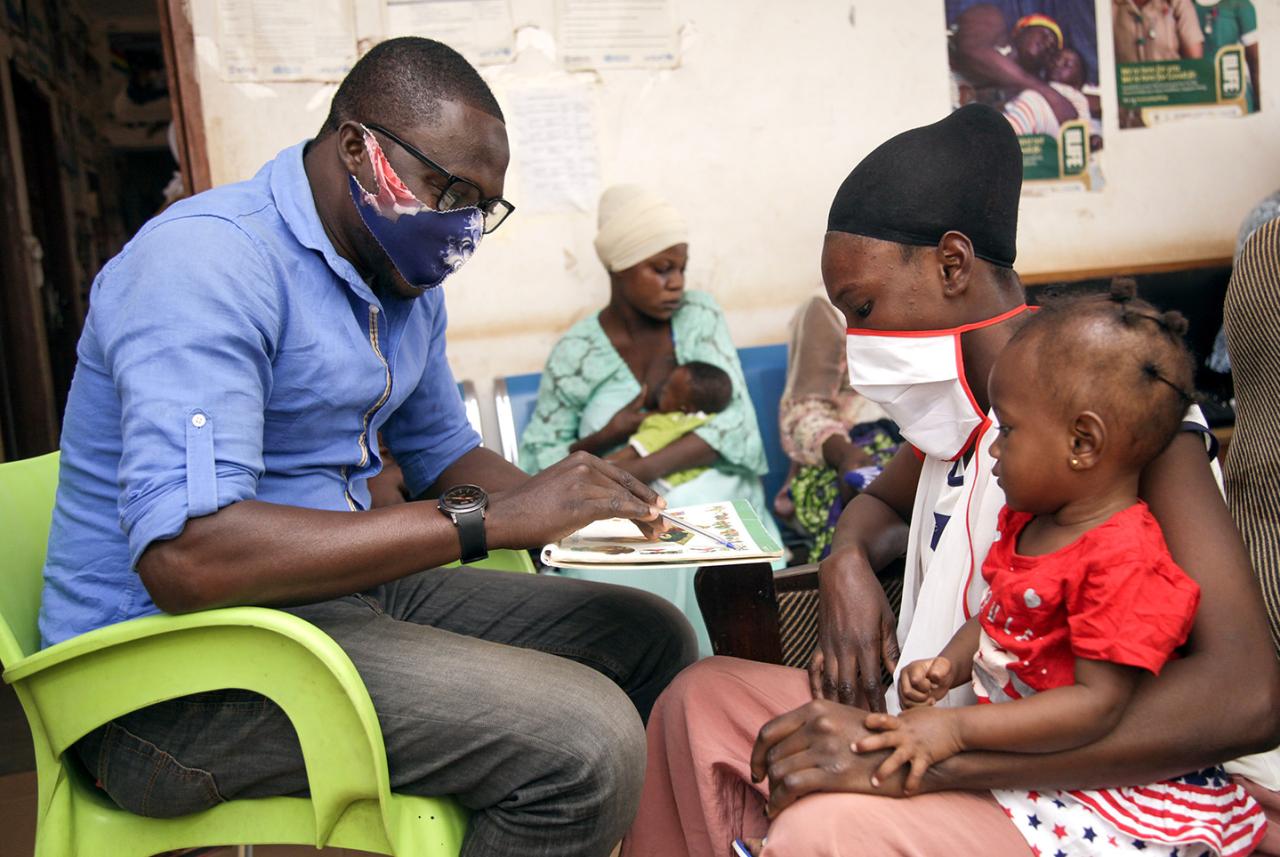
In the past year, the global community has been affected by unprecedented challenges, most notably conflict, climate change, and the reverberations of COVID-19—known as the three Cs threatening progress in mitigating hunger, food security, and malnutrition. However, the global nutrition community is finding ways to come together to meet those challenges. USAID Advancing Nutrition continues to be dedicated to catalyzing nutrition action at both national and global levels. We strive to strengthen the capacity of public, private, and nongovernmental actors to improve food and health systems to sustainably reduce malnutrition around the globe. Explore this page and download our Year 4 in Review to learn more.
Download Year in Review Report (PDF, 4.89 MB)
Nutrition Governance through Planning, Policy, and Finance
We partner with governments from national to local levels through our country programs to build strong foundations for multi-sectoral nutrition programming. In partnership with local stakeholders, we have facilitated, coordinated, and tracked multi-sectoral progress in achieving and sustaining national nutrition objectives.
Capacity Strengthening for Nutrition
Strengthening the capacity of public, private, and nongovernmental actors is key to strengthening systems that deliver nutrition-specific and nutrition-sensitive solutions. Throughout the project’s fourth year, we provided 379 organizations with training and technical assistance to design, implement, and monitor nutrition programs, including our New Partnerships Initiative (NPI) grantees in Kenya and Burkina Faso. We also trained more than 8,700 people to design, implement, monitor, and evaluate nutrition programming.
Convening and Catalyzing Nutrition Action
PY4 provided opportunities to extend USAID Advancing Nutrition’s reach and support by bringing stakeholders together to strengthen health, food, and education systems. We facilitated high level consultations to translate policy into action, supported the establishment and strengthening of a multi-sectoral nutrition surveillance network, and delivered program design workshops, among others. Through such efforts, in addition to evidence generation and dissemination activities, we were able to expand our portfolio for greater impact.
Advancing Multi-Sectoral Nutrition Priorities
USAID Advancing Nutrition continued to build on four shared technical areas of work across critical stages in the nutrition life cycle that align with USAID’s priorities for nutrition globally: micronutrients, infant and young child feeding, healthy diets, and wasting prevention and management.
Key Accomplishments
- The Diet Assessment Decision Tool provides existing data sources and data collection tools to make it easier for practitioners and decision makers to understand dietary patterns and nutrient intake.
- Illustrative Behaviors to Improve Nutrition-Sensitive Agriculture serves as a companion piece to USAID’s Designing Effective Nutrition-Sensitive Agriculture Activities Guide to help identify nutrition-sensitive behaviors across the food system and food system actors to support an activity’s nutrition outcomes.
- We continue to collaborate with the Global Diet Quality Project and the WHO/UNICEF Technical Expert Advisory Group on Nutrition Monitoring to contribute to improved measurement of food consumption and diets.
- An important research study using data from Bangladesh, Viet Nam, and Nigeria compares methods to accurately measure exclusive breastfeeding.
- We developed several tools to help address common barriers to achieving quality nutrition counseling.
- We launched the Feeding and Disability Resource Bank to help implement effective nutrition programs for children with disabilities.
- We have learned important lessons about how purposeful co-location of nutrition partners in four provinces in the Democratic Republic of the Congo impacts wasting programming.
- Our mapping exercise compares program details of various lipid-based nutrient supplement partners and identifies gaps and opportunities for capacity strengthening.
- We convened USAID stakeholders to map a way forward for supporting wasting prevention and treatment programming across and among sectors in varying country contexts and capacities.
- We published research estimating the global and regional prevalence of deficiencies in one or more micronutrients among preschool-age children and non-pregnant women of reproductive age.
- The USAID Advancing Nutrition Anemia Taskforce has introduced an ecological approach to anemia programming that accounts for biology, assessment, and implementation of interventions that can help governments and practitioners understand how to better address anemia in different contexts.
- We are supporting research in five countries to identify the best population-based survey procedures and methods for determining hemoglobin concentration to strengthen anemia prevalence measurement.